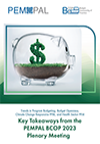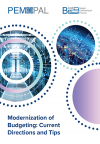May 2024
This analytical note was prepared following the discussions of the TCOP Thematic Group on Cash Management in Vienna in November 2023 and presents a rationale for including or excluding certain types of public funds in the boundaries of the Treasury Single Account (TSA).











